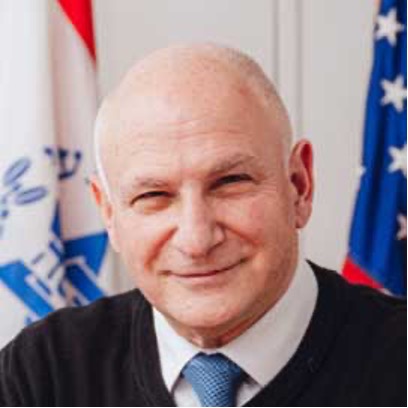
In this extensive interview, Prof. Yoram Weiss, the director general of Hadassah Medical Organization, sheds light on the multifaceted challenges the Hadassah Hospital campuses are facing in the wake of the Israel-Hamas war that began on October 7. The Hadassah hospitals in Jerusalem have been actively involved in treating a substantial number of patients, both civilians and soldiers, with over 500 individuals receiving medical care. The focus of treatment has extended beyond physical injuries, encompassing the provision of psychological support due to the surge in post-traumatic stress disorder (PTSD) across the nation.
Prof. Weiss underscores the acute nature of PTSD, particularly among civilians who experienced the traumatic events of October 7. He discusses the prevalence of psychological trauma, especially among young individuals who witnessed distressing incidents, such as large parties where friends were harmed. The interview also delves into the broader societal impact, with Prof. Weiss expressing confidence in Israel’s capacity to address the psychological fallout. However, he emphasizes the need to channel efforts into bolstering the country’s capabilities in post-trauma and psychological support, as well as psychiatric care.
The conversation extends to the challenges faced by children, who may be grappling with stress due to exposure to news or having family members in the military. Prof. Weiss notes the importance of awareness, particularly regarding the potential manifestation of PTSD as eating disorders in children. Additionally, the interview touches upon the hospital’s commitment to treating patients without discrimination, including Palestinians, highlighting the diverse workforce that collaborates towards a shared mission of peace.
Prof. Weiss provides updates on the hospital’s capacity, revealing plans to open the new Gandel Rehabilitation Center ahead of schedule. He discusses the range of injuries treated, from eye and limb injuries to shrapnel wounds, attributing the lower death toll to improved protective gear for soldiers. The interview also touches on ongoing research initiatives at Hadassah, spanning areas like stem cells, CAR T-cell therapy, early cancer diagnosis, and robotics.
Addressing the impact on hospital personnel, Prof. Weiss acknowledges the stress faced by medical professionals, many of whom have family members in the military or have lost loved ones. He expresses gratitude for the dedication of the hospital staff and acknowledges the support provided to them during challenging times. The interview concludes with Prof. Weiss discussing the hospital’s readiness for potential future conflicts, the importance of completing ongoing projects, and expressing gratitude for international volunteers who have offered assistance.
The Media Line Interview
Exclusive: Hadassah Medical Organization Grapples With Hundreds of Wounded and a Country With PTSD